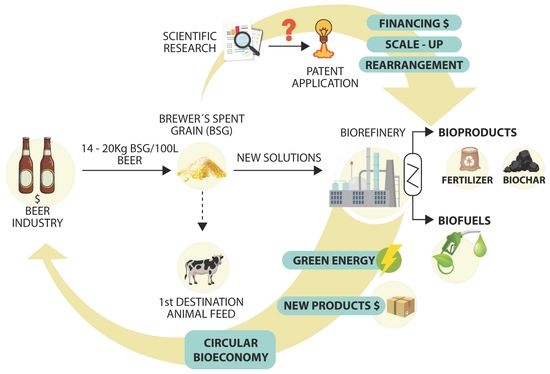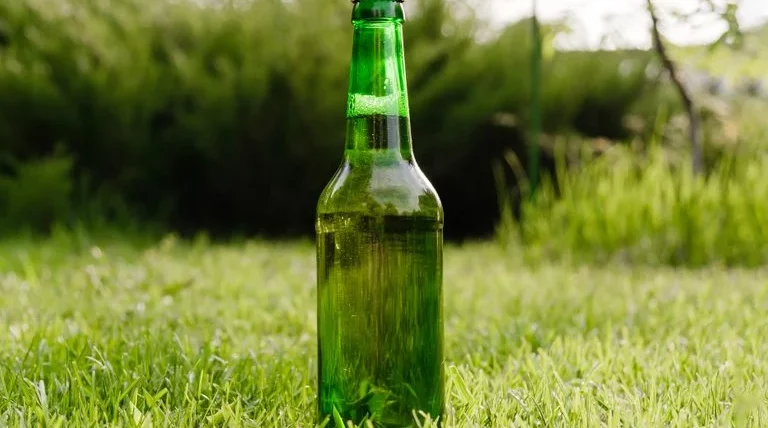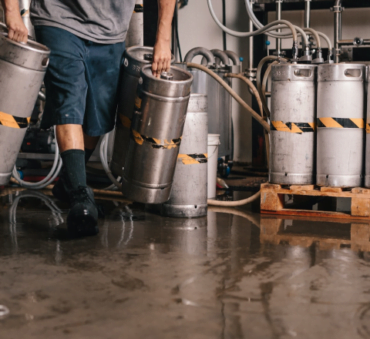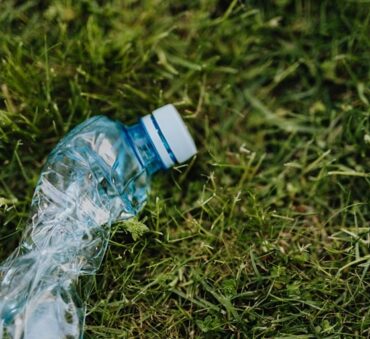Did you know that beer is not just a popular alcoholic beverage but also an agricultural product?
Yes, that’s right! When producers make beer, they rely on a steady supply of high-quality grains and hops to create the perfect brew.
That’s why they have developed a strong collaborative relationship with farmers. After all, it’s all about the quality ingredients that go into crafting that perfect pint.
But hold on, there’s more to the fascinating connection between beer and agriculture. We’re about to dive into another more unusual aspect – beer as a fertilizer.
We’ll explore the answers to some burning questions like: Is beer truly beneficial for plants? Can it contribute to leveling up agriculture and promoting sustainability? What are the downsides to using beer as fertilizer?
Let’s get started!
Is Beer Good for Plants?
When it comes to unconventional gardening hacks, beer takes the spotlight as a surprising contender. But is beer really beneficial for our leafy friends?
Here is what you need to know:
Beer Components
The four main ingredients that constitute beer are as follows:
- Grains: To make beer, brewers mainly use barley. But other grains like corn, rye, rice, oats, wheat, and spelt can also be used. The grains give beer its distinct flavor, aroma, and color. They are also the main source of carbohydrates that play a crucial role in beer fermentation.
- Hops: These green flowers add bitterness and a rich aroma to beer. The hop flowers are usually boiled to bitter the brew. There are many varieties of hops, each with its distinctive flavor and aroma.
- Yeast: These microorganisms are responsible for fermentation, transforming sugars into alcohol and carbon dioxide. There are two major types of yeast (ale and lager yeast), with hundreds of different yeast strains within each type.
- Water: The base of any beer is water, as it provides the necessary hydration for the brewing process.
Beer Nutrients
In moderate quantities, beer has some health benefits since it contains important vitamins, minerals, and antioxidants. Here is the nutritional value of a can of beer (355 ml):
| Nutrients in beer | Beer nutrient content |
| Calories | 153 |
| Protein | 2 grams |
| Fat | Less than 1 gram |
| Carbohydrates | 13 grams |
| Fiber | Less than 1 gram |
| Sugar | Less than 1 gram |
| Sodium | 14 grams |
| Potassium | 2% of DV |
| Choline | 7% of the DV |
| Calcium | 1% of DV |
| Selenium | 4% of the DV |
| Phosphorus | 4% of the DV |
| Riboflavin | 7% of the DV |
Besides that, beer is also a source of magnesium, niacin, and folate.
Fun fact: Dark beer has more antioxidants, helping your body fight against free radicals.
Nutrients That Promote Plant Growth
The major nutrients vital for plant growth are:
- Phosphorus (P): Vital for root development and energy transfer from sunlight to the plant, phosphorus contributes to robust and healthy root systems.
- Calcium (Ca): This nutrient stimulates plant growth and is essential for cell structure and stability.
- Potassium (K): Potassium regulates water uptake and plays a role in photosynthesis and disease resistance.
- Magnesium (Mg): Necessary for chlorophyll production, magnesium helps plants harness the power of sunlight for growth.
- Sulfur (S): Though needed in smaller quantities, sulfur is crucial for various enzyme functions and protein synthesis in plants.
- Nitrogen (N): An essential component for leafy green growth, nitrogen is a potent fertilizer that aids in the production of chlorophyll, giving plants their vibrant green color.
Beer contains some of these vital nutrients that foster healthy vegetation. But how to use beer for plants?
How to Use Beer as a Fertilizer?
To harness beer’s nourishing properties and ability to boost plant growth, you can:
- Incorporate beer into your watering routine: Beer can be a powerful organic fertilizer if used properly. Just mix beer with water and apply it to your plants evenly with a spray bottle (or a spray attachment on your garden hose).
- Be consistent: Consistency is key if you want to see results. To harvest all the benefits, repeat the application every couple of months.
- Use stale beer: Yes, you can use expired beer for fertilizing purposes. Not sure if your beer is no longer drinkable? Some old beer signs include no fizziness, no foam, and an off taste. So, if you have bottles of old beer lying around, you can just use them for gardening purposes.
- Utilize beer fertilizer for tomato and pepper plants: Did you know that tomatoes and peppers, in particular, relish the nutrients found in beer? You can directly pour beer at the base of the plant roots. This will enhance their growth and boost your harvest. What other plants benefit from beer? Besides the above two, roses, hops, and potatoes can also benefit from small amounts of beer.

Potential Downsides of Beer Fertilizer
While beer can be used for agricultural purposes, it’s essential to be aware of some potential downsides of beer as a fertilizer:
- Alcohol content: The alcohol in beer may negatively impact soil microbes, disrupting the delicate ecosystem that supports plant health. To ensure no damage is done, you can leave the beer open for at least 24 hours so most alcohol evaporates.
- Carbohydrates: While plants need carbohydrates, beer contains only simple carbs, which are quickly absorbed. A more beneficial approach is enhancing the soil with complex carbohydrates, which are better at stimulating plant growth.
- Carbon dioxide: Plants need CO2, but they mostly thrive on CO2 from the air. So, adding extra carbon dioxide to the soil might not make any difference in the end.
The bottom line? Beer offers valuable nutrients, but its excessive use can lead to negative consequences for your garden. You can carefully apply beer as an agricultural fertilizer and monitor its effects on your plants to maximize its benefits without compromising plant health. The same goes for the rest of farm waste management techniques that aim at improving agriculture: it’s a double-edged blade.
Other Uses of Old Beer in the Garden and Agriculture
Not sure what to do with old beer? Beer has other applications in agriculture and gardening. Here are some of the more popular ones:
Promotes More Vibrant Greenery
Beer can help you revitalize brown patches on your lawn. The fermented sugars present in beer act as a natural tonic, nourishing the grass with essential nutrients and building up your garden soil.
Meanwhile, the beer’s mildly acidic nature eliminates fungi and pests that may be causing the brown spots. To improve grass health, just get a spray bottle or attach a sprayer to your hose to cover larger areas.
Acts as a Compost Enhancer
Incorporating old beer into compost introduces a wealth of valuable nutrients that enrich the soil.
Not only does beer contribute essential elements, but it also accelerates the decomposition process. This breaks down organic matter and transforms it into nutrient-dense matter.
Additionally, this is a much cheaper alternative to store-bought compost boosters.
Eliminates Flying Insects
Beer makes an effective trap for fruit flies and wasps. That’s because beer’s aroma is irresistible to insects and allures them in.
The trap (usually a mix of stale beer and some dish soap in a cup covered with plastic) has small openings for the insects to enter but makes it impossible for them to get out. Once the cup is filled with insects, just replace it with a new one.
Fights Slugs and Snails
Similarly, to fruit flies, slugs and snails can’t resist the beer aroma. Simply place a jar filled with stale beer buried up to its rim in the affected areas. The slugs and snails, lured by the scent, will slip and tumble into the jar.
This ensures your garden will be pest-free and healthier than ever.
Read more: Learn how to responsibly dispose of alcohol or how to choose a reliable beverage destruction company.
Risks of Using Beer as a Fertilizer
When used properly, beer can be a beneficial fertilizer. But it can have the opposite effect if used without prior experience, knowledge, and risk assessment.
Here are a few considerations to keep in mind:
Environmental Damage
Using beer as fertilizer without understanding the quantities you need and how to distribute them adequately can lead to environmental harm.
In large quantities, overflow or runoff of unused beer is considered hazardous liquid waste. If it reaches nearby water bodies, it can cause nutrient imbalances and affect aquatic ecosystems.
This, in turn, can lead to issues such as algal blooms and a decline in water quality. If you are using beer as a fertilizer, ensure its careful management in accordance with governmental indications to avoid any negative environmental consequences.
Reduced Crop Yields
Inappropriate use of beer in agricultural practices can result in diminished crop yields.
The overuse of beer as a fertilizer or the lack of a balanced approach may lead to the oversaturating of the soil with nutrients the plants don’t need, hampering their growth and productivity.
Without the right expertise, farmers may struggle to harness the full potential of beer as a fertilizer, impacting their agricultural output.
Economical Problems
The mismanagement of beer as fertilizer can pose financial challenges for your agriculture business.
Inefficient application methods, leading to subpar crop yields, can result in wasted resources, time, and money. Moreover, the potential environmental damage caused by unguided practices may lead to additional fines and legal repercussions.
Entrust Your Old Beer Disposal to the Experts
When it comes to the disposal of expired or surplus beer, entrusting an experienced and reliable beverage destruction and waste management company can make all the difference.
At Shapiro, we have vast experience in handling liquid waste and know how to dispose of old beer (we also offer beer keg decanting). Additionally, we have a network of certified processing facilities. This enables us to handle waste responsibly, ensuring a sustainable and eco-friendly approach to waste management.
Contact us today if you need assistance with handling your beer disposal processes.
Baily Ramsey, an accomplished marketing specialist, brings a unique blend of anthropological insight and marketing finesse to the digital landscape. Specializing in educational content creation, she creates content for various industries, with a particular interest in environmental initiatives.



